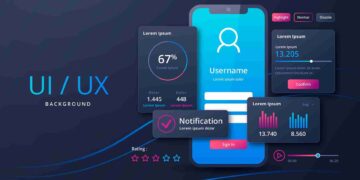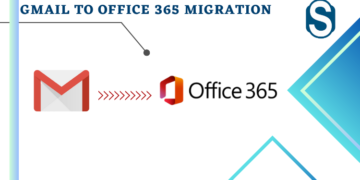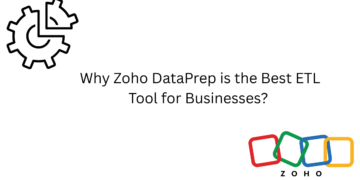Introduction
In today’s hyper-competitive business landscape, customer expectations are constantly evolving. Organizations can no longer rely on generic solutions to manage customer relationships—they need systems that understand their industry’s unique dynamics. This is where Microsoft Dynamics CRM partners come into play. By leveraging the robust capabilities of Microsoft Dynamics CRM, these partners create industry-specific solutions that drive efficiency, compliance, and personalized customer engagement in niche markets.
This article explores how Microsoft Dynamics CRM partners customize and optimize CRM solutions to meet the specialized needs of industries like healthcare, finance, manufacturing, retail, and education.
The Growing Need for Industry-Specific CRM Solutions
Customer Relationship Management (CRM) systems are the backbone of any modern business. However, out-of-the-box CRM platforms often fall short when it comes to handling industry-specific workflows, regulatory requirements, and customer behavior patterns. For example:
- A financial services firm must ensure data privacy and regulatory compliance under strict frameworks like GDPR or PCI DSS.
- A healthcare provider must manage patient data securely while integrating with EMR systems.
- A manufacturing firm may require support for complex B2B sales cycles and inventory-linked quoting systems.
Generic CRM systems are not equipped to handle such nuances, which is why businesses are turning to Microsoft Dynamics CRM partners for tailored solutions.
What Microsoft Dynamics CRM Partners Bring to the Table
Microsoft Dynamics CRM partners are certified professionals and organizations with deep technical knowledge of the Dynamics 365 platform and specialized expertise in various industries. Their value goes far beyond technical implementation—they understand how to translate real-world industry challenges into customized CRM workflows and features.
Key Capabilities of CRM Partners:
- Deep domain expertise
- Custom app development
- Workflow and automation design
- Compliance and security implementation
- Third-party system integrations
- Ongoing support and optimization
Tailoring CRM for Healthcare
Healthcare is a highly regulated and data-intensive industry. Managing relationships with patients, providers, and insurers requires more than just a standard CRM.
How Dynamics CRM Partners Customize for Healthcare:
- Patient Relationship Management: Tailored modules for managing patient interactions, appointment scheduling, and treatment history.
- HIPAA Compliance: Implementing secure data access and encryption protocols to protect patient data.
- Integration with EMRs: Seamless synchronization with electronic medical records (EMRs) and health systems like HL7 or FHIR.
- Patient Portals: Creating portals that improve patient engagement through online access to services, communication, and history.
Outcome: Improved care coordination, streamlined communication, and higher patient satisfaction.
CRM Customization for Financial Services
In the finance sector, managing client relationships involves strict compliance, complex workflows, and high-touch engagement.
How CRM Partners Optimize Dynamics for Finance:
- KYC & AML Processes: Automating Know Your Customer (KYC) and Anti-Money Laundering (AML) checks within the CRM workflow.
- Client Onboarding Journeys: Customized stages for onboarding retail or institutional clients, including document verification and risk profiling.
- Regulatory Reporting: Automated reporting tools aligned with local and international financial compliance standards.
- Investment Portfolio Tracking: Embedding modules for tracking client portfolios, transactions, and performance metrics.
Outcome: Faster onboarding, improved client trust, and a stronger regulatory framework.
Enhancing CRM for Manufacturing
Manufacturers often manage long sales cycles, multiple stakeholders, and complex quoting processes.
How CRM Partners Tailor for Manufacturing:
- CPQ (Configure, Price, Quote): Integration with CPQ tools to handle complex product configurations and quotations.
- Dealer & Distributor Portals: Building portals for managing reseller and distributor relationships.
- Sales & Inventory Sync: Real-time sync between CRM and ERP for accurate stock levels and order fulfillment.
- After-Sales Service: Creating service modules for warranties, repairs, and parts management.
Outcome: Streamlined operations, better forecasting, and improved partner relationships.
Retail-Specific CRM Enhancements
Retailers face the challenge of managing a high volume of customers while delivering personalized experiences.
How CRM Partners Customize for Retail:
- Loyalty Program Integration: Building loyalty and rewards systems into the CRM for tracking points, redemptions, and customer tiers.
- Omnichannel Engagement: Connecting CRM with online stores, social media, POS systems, and customer service platforms.
- Campaign Management: Creating marketing automation tools that respond to real-time shopping behavior.
- Customer Segmentation: Using AI and machine learning to build dynamic customer segments based on purchase history, demographics, and preferences.
Outcome: Higher customer retention, increased average order value, and targeted marketing.
Tailored CRM for Education Sector
Educational institutions are increasingly using CRM systems to manage student recruitment, communication, and alumni relations.
CRM Partner Contributions to Education:
- Admissions Management: Streamlining student application and enrollment workflows with automated communication.
- Student Engagement: Managing student queries, event invitations, and support tickets within a centralized system.
- Alumni Relationship Building: Tracking alumni contributions, engagement, and event participation.
- Integration with Learning Management Systems (LMS): Connecting the CRM with platforms like Moodle or Canvas for a 360-degree view of students.
Outcome: Enhanced student experiences, better engagement, and improved alumni support.
Benefits of Industry-Tailored CRM Solutions
Higher User Adoption
Employees are more likely to use a system that matches their daily workflows, increasing ROI.
Increased Efficiency
Automation of industry-specific processes reduces manual effort and errors.
Regulatory Compliance
CRM partners ensure that your system adheres to local and global standards.
Better Customer Insights
Customized dashboards and reports provide real-time insights tailored to your sector.
Competitive Advantage
Tailored systems offer a unique edge over competitors using generic CRM tools.
How to Choose the Right Microsoft Dynamics CRM Partner
When selecting a partner to tailor your CRM, consider the following:
- Industry Experience: Do they have proven success in your field?
- Microsoft Certification: Are they a certified Dynamics 365 partner?
- Customization Capabilities: Can they build and integrate custom modules?
- Support Services: Do they offer ongoing support and optimization?
- Client References: Can they provide case studies or testimonials?
A strategic partnership with the right Microsoft Dynamics CRM partner can dramatically impact your digital transformation journey.
Conclusion
Every industry has its own set of challenges, workflows, and compliance requirements. A one-size-fits-all CRM solution simply doesn’t cut it. That’s why businesses across sectors are turning to Microsoft Dynamics CRM partners to create tailored, intelligent CRM systems that align with their specific operational needs.
By leveraging industry knowledge and technical expertise, CRM partners are not just implementing software—they’re building the foundation for deeper customer relationships, smarter decision-making, and long-term business growth. Whether you’re in healthcare, finance, retail, education, or manufacturing, partnering with the right CRM experts is the key to unlocking your CRM’s full potential.



























